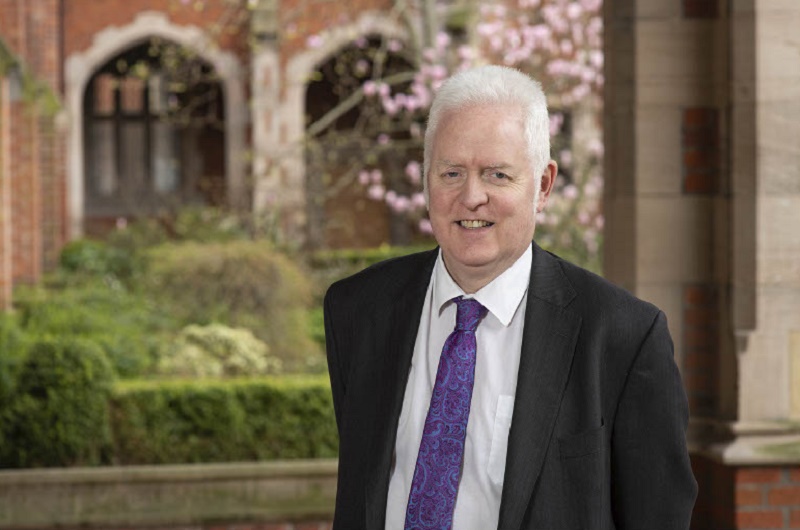Funding pressures will worsen cancer crisis without independent oversight and data-driven action
Leading cancer experts warn the UK cancer care system is facing a critical breaking point, in a call for radical action to head off deepening financial pressures.

Leading cancer experts warn the UK cancer care system is facing a critical breaking point, in a call for radical action to head off deepening financial pressures.
Published today in The Lancet Oncology, cancer experts call for the Government to act urgently, appoint an independent National Cancer Director, and an office of support to take data-driven actions to address the cancer crisis in the UK.
The authors warn that ongoing healthcare cuts following the abolishment of NHS England, and major international shifts in health collaboration, could “eclipse attempts to reverse the poor cancer outcomes the country faces”.
The comment piece highlights urgent current and future issues and sets out several urgent policy recommendations to improve survival and quality of life for people with cancer.
The authors warn, “In a system already struggling to meet demand, and with cancer incidence projected to rise by 30% by 2040, how can we deliver optimal care within this new cash-strapped landscape?”
Among the issues highlighted is the abolishment of NHS England, which the authors comment marks a seismic shift in UK healthcare governance. The authors highlight that the greatest risk lies in reactive, short-term, ill-informed decision-making by the government, which could further reduce UK cancer survival rates, deepen health inequalities and escalate inefficiencies.
Professor Mark Lawler, Professor of Digital Health at Queen’s University Belfast and lead author, explains: “The urgency is clear: in my mind, we are already in the midst of a cancer crisis, precipitated by 14 years of gross mismanagement of cancer by the previous administration and the collateral impact of COVID and national lockdowns on cancer services and cancer patients."Now, more than ever, we must learn from each other, acknowledge the scale of the challenge, and implement data-driven solutions and achieve efficiencies, some of which may be contentious in the short-term, but are essential for long-term cancer control within financial constraints.”
Professor Pat Price, Imperial College London, Chair of Radiotherapy UK and an author in the Lancet piece, said: “Delayed cancer treatment has become the deadly norm in this country, and we won’t reverse it unless we commit to doing things differently. If we keep doing the same things, with the same voices in the room, we’re going to continue to face some of the worst cancer outcomes in Europe.
"In the massively overlooked area of radiotherapy cancer care, for example, nearly two-thirds of cancer patients are waiting too long for their cancer treatment. Too often, we see cancer policy take a tunnel-vision approach, only focusing on areas like early diagnosis and completely overlooking the fact that we need to actually treat patients if we want to improve survival.
"The international environment, domestic funding pressures and a lack of policy priority to take the action needed could eclipse attempts to reverse the poor cancer outcomes the country faces. If we want to stop cancer patients in this country from dying needlessly, the promised cancer plan has to be radical. It needs to be data-driven. And it needs to ensure that if money is tight, we’re spending it on the things that are proven to improve cancer outcomes.”
Professor Richard Sullivan, Director of the Institute for Cancer Policy, Kings College London and an author in the Lancet piece, said: “We need to get real. The evidence is irrefutable – we need to recognise the impact that the global insecurity we are currently experiencing will have on health systems. If defence spending goes up, as it certainly will, health expenditure will suffer. And the recent bombardment with tariffs from the new US Government will only make matters worse.”
Another issue highlighted by the research team is the need to cut the lengthy consultation by the current government, which is delaying the crucial development of a new national cancer strategy.
Professor Mark Lawler added: “We cannot continually consult our way out of a crisis – the evidence we and others have provided is irrefutable. We have more than enough data intelligence – what we need to do is act on this evidence as a matter of urgency.
"At the turn of the century, Denmark had worse cancer outcomes than the UK. But by prioritising cancer at the very top of the Danish health agenda, they now have among the best improvements in cancer outcomes in Europe.
“We need to “do a Denmark"”. If we don’t act urgently and boldly 'follow-the-data”, we’ll forgo our precious opportunity and remain rock-bottom in the competition against cancer, our deadly enemy.”
Featured Expert

ASSOCIATE PRO-VICE-CHANCELLOR AND PROFESSOR OF DIGITAL HEALTH, CHAIR IN TRANSLATIONAL CANCER GENOMICS
The Patrick G Johnston Centre for Cancer Research
Media
Media inquiries to Sian Devlin at s.devlin@qub.ac.uk